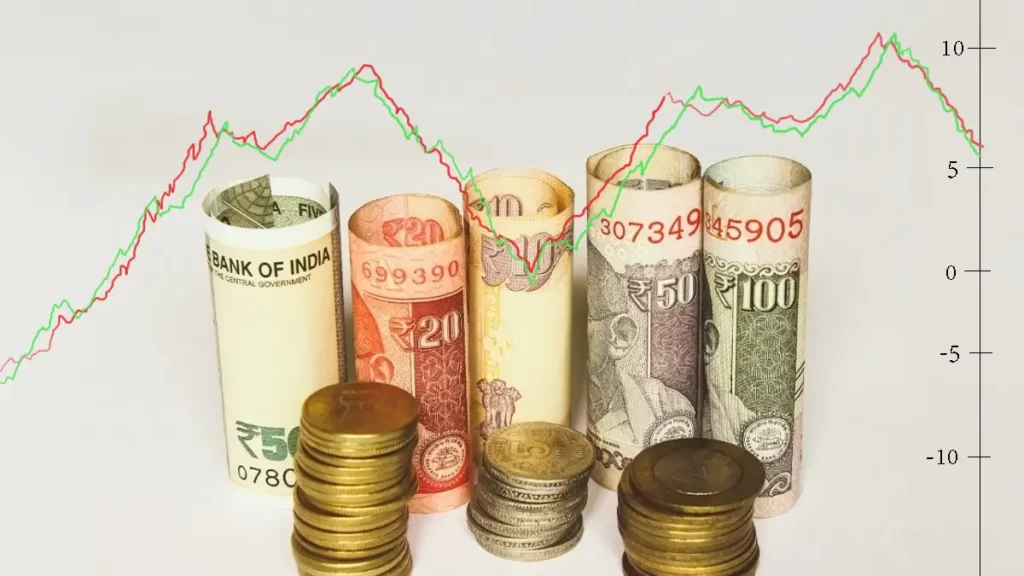In October, India’s outward foreign direct investment (FDI) commitments dropped by 12.14%, to $1.88 billion, marking a significant decline from September’s $2.14 billion. This is a notable decrease from over $2.66 billion in the same period in 2022. It reflects a slowdown in global economic growth.
FDI
Outbound foreign direct investment (FDI), when measured as a financial commitment, includes three main parts: equity, loans, and guarantees.
The sluggishness in economic and business activities, particularly in developed markets, has influenced direct investment flows, affecting both inbound and outbound transactions.
The majority of outward foreign direct investments are directed towards subsidiaries or stakes in foreign companies.
Bankers suggest that a slowdown in developed markets leads to fewer opportunities for such investments.
Similar to the subdued outbound foreign direct investment figures, there has also been a sluggishness in inward foreign direct investment, which refers to overseas money flowing into India.
October snapshot
According to RBI data, net foreign direct investment (FDI) into India significantly dropped to $2.99 billion in April-August 2023-24. It was $18.03 billion in the same period of 2022-23. This decline is attributed to a slowdown in global investment activity and an increase in repatriation.
Equity
Examining the elements of outbound foreign direct investment, equity commitments rose to $865.28 million in October 2023. This indicates an increase from $485.08 million in September 2023.
However, this figure is notably lower than the $1.42 billion reported in October 2022.
Debt
Debt commitments experienced a decline to $245.81 million in October, a decrease from $510.29 million in September and notably lower than the $515.56 million recorded in October 2022.
Guarantees
According to RBI data, guarantees for overseas units decreased to $774.19 million in October from $1.14 billion in September.
Nevertheless, this amount was slightly higher than the $721.43 million reported for the same period a year ago.
World economy affects Indian FDI
In recent times, India has begun to experience the impact of a slowing down world economy and rising interest rates. This has caused a noticeable drop in Foreign Direct Investment (FDI) flowing into the country.
Looking at four quarter figures, the FDI going into India has decreased. From July 2020 to June 2021, India attracted $70 billion, but from July 2022 to June 2023, the FDI halved to $33 billion.
Slow investment and delays in actions
According to the report, there are delays in putting plans into action, where announcements have been made but the real investment has not yet taken place.
For instance, the report mentions commitments for electronic manufacturing investments from companies such as Foxconn, Intel, and eight others to manufacture laptops in India. However, as of now, their actual investments have not materialized.
Growth amid sluggish investment scenario
Despite the turbulence in Foreign Direct Investment (FDI), the investment scenario within the country appears promising.
The public capital expenditure to Gross Domestic Product (GDP) ratio has reached an 18-year peak at 3.0% of GDP.
In the fiscal year 2024 budget, the central government has increased its capital expenditure target by 33%, reaching ₹10 lakh crore.
At the state government level, capital expenditure has been robustly growing, with the States’ capital expenditure to GDP ratio reaching 2.6%, near a 4-year high.
Notably, the share of state capital in overall state expenditure has risen to 17%, the highest since 2018.
Besides these spending channels, policymakers also advocate for increased infrastructure spending through other government entities such as the National Highways Authority.
The investment-to-GDP ratio in India has rebounded to 31% from the Covid-induced low of 29%.
Looking ahead, Upasana Chachra, Chief India economist at Morgan Stanley, foresees the investment-to-GDP ratio climbing to 36% in FY27, eventually stabilizing at 33% in FY30.
